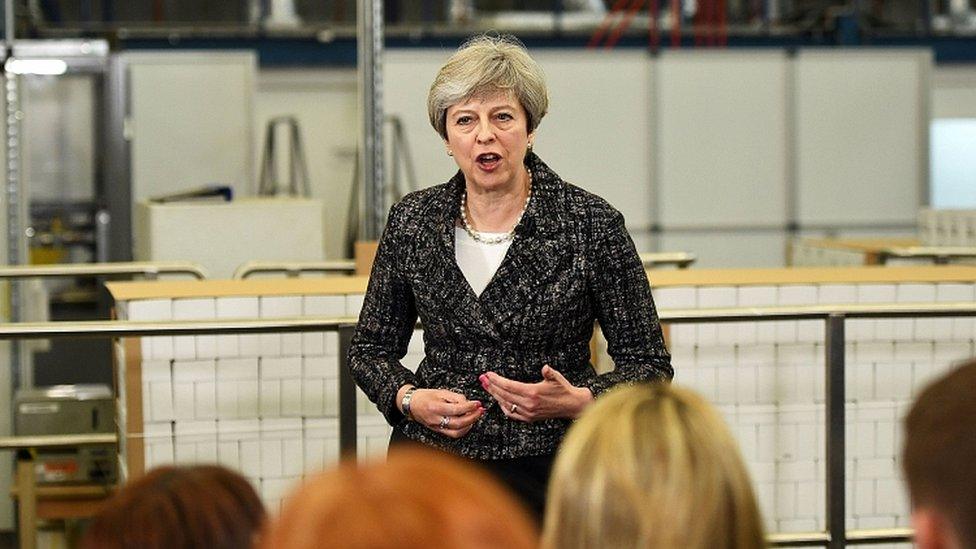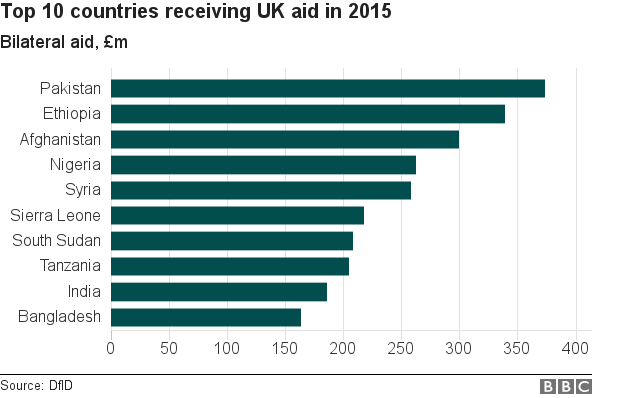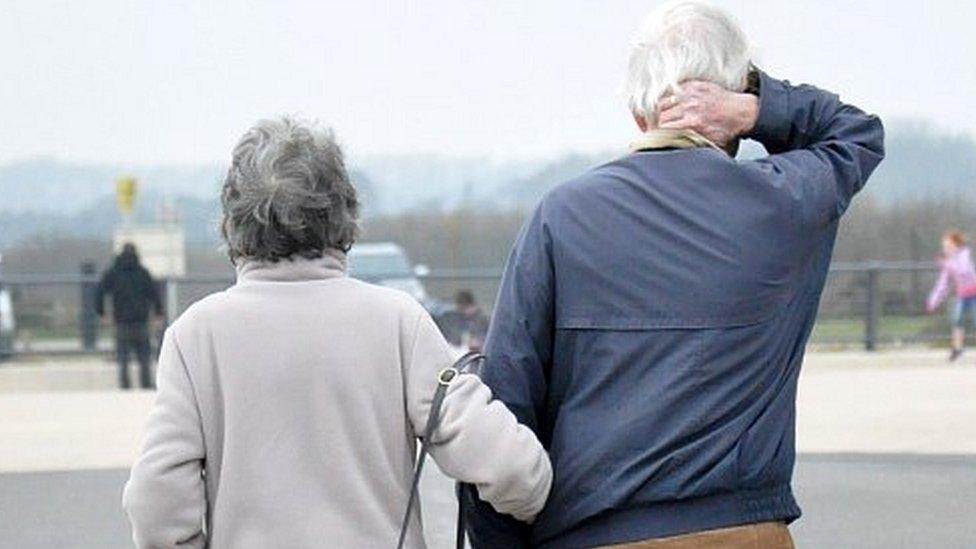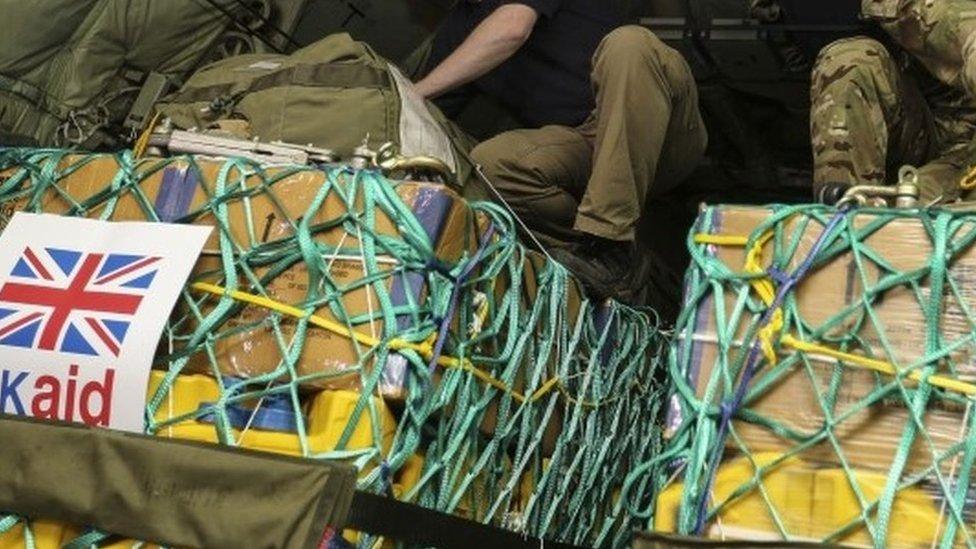General election 2017: No cut to UK aid spending, says May
- Published
- comments

Theresa May has ruled out cuts to the UK foreign aid budget if she wins the election but doubts have been cast on other existing Conservative pledges.
The prime minister said the commitment to spending 0.7% of national income on aid "will remain" although it must be spent "in the most effective way".
It follows speculation she was ready to drop it from the Tory manifesto.
But she declined to guarantee existing spending on state pensions which ensures a minimum 2.5% annual increase.
Meanwhile, Chancellor Philip Hammond has hinted that a pledge in the 2015 Conservative manifesto not to raise income tax, VAT or National Insurance before 2020 could be abandoned.
In other general election developments:
Len McCluskey, a key ally of Jeremy Corbyn, is re-elected leader of Unite
The Lib Dems say they have raised £500,000 in the past 48 hours
Labour pledges to act over "super-sized" primary class sizes
Plans to raise the legal fees payable after death are axed
Conservative MP David Mackintosh faces deselection fight
The 0.7% aid commitment was adopted by David Cameron when he became prime minister in 2010 and later enshrined in law.
The UK has met the international target - which originates in United Nations aspirations from the 1970s - every year since 2013. There has been talk it might be among a number of high-profile policies championed by Mrs May's predecessor that she might drop to ease pressure on the public finances.
But asked about its future at an election campaign event in Berkshire, Mrs May said: "Let's be clear, the 0.7% commitment remains and will remain.

"What we need to do though is look at how that money is spent and make sure that we are able to spend that money in the most effective way."
Former chancellor George Osborne welcomed Mrs May's pledge, tweeting that it was the "morally right" thing to do and would maintain the UK's global "influence".
Leading aid organisations, including Unicef and Save The Children, expressed delight at the development, which comes 24 hours after Microsoft founder and philanthropist Bill Gates warned that ending the commitment would cost lives.
But the Taxpayers Alliance campaign group said it was disappointed that the "arbitrary and meaningless" target was not being dispensed with.
Foreign aid has been ringfenced from public spending cuts over the past seven years and has been one of the few areas to see a large increase in budgets.
In 2015, the last year for which figures are available, the UK spent £12.1bn on overseas development assistance. This was projected to rise to £13.3bn in 2016.
'Better off'
This has proved unpopular with some Tory MPs at a time of austerity in domestic public services and amid media reports about waste in certain aid projects.
The BBC's political correspondent Chris Mason said a senior Conservative source, familiar with the aid budget, refused to be drawn as to whether this amounted to an acceptance of how aid spending is currently defined, or could potentially include a broadening of what would count as aid spending in future.

The triple lock is one of the government's most expensive policy commitments
Asked about another of the Conservatives' 2015 election manifesto commitments - the so-called "triple lock" on the state pension which guarantees an annual rise of at least 2.5% - Mrs May declined to confirm it would stay in force.
"What I would say to pensioners, is just look what the Conservatives in government have done," she said.
"Pensioners today, £1,250 a year better off as a result of action that has been taken. We were very clear about the need to support people in their old age and that's exactly what we've done".
The triple lock - which pegs the state pension to annual increases in prices or earnings, whichever is higher, or a minimum of 2.5% - was introduced by the Conservative-Lib Dem coalition government in 2010.
A review carried out by the former CBI boss John Cridland earlier this year recommended it be ended. He warned that if it remained in place, an extra 1% of GDP - equivalent to £19.5bn in current prices - would probably have to be spent on pensions by 2036-37.
Labour, which has vowed to retain the lock and other pensioner benefits such as the winter fuel allowance if elected, said its opponents were "abandoning older people".
Speaking in Washington DC, Mr Hammond also cast doubt on David Cameron's 2015 pledge not to raise income tax, VAT or National Insurance before 2020.
He told the BBC that while no final decision had been taken, the government needed "flexibility" on taxes.
The BBC's economics editor Kamal Ahmed said it was the clearest hint yet that Mr Hammond - who was forced to backtrack on his proposed Budget rise in NI contributions for the self-employed - would like to see the promise significantly amended if not ditched altogether.
- Published13 February 2017

- Published24 October 2016